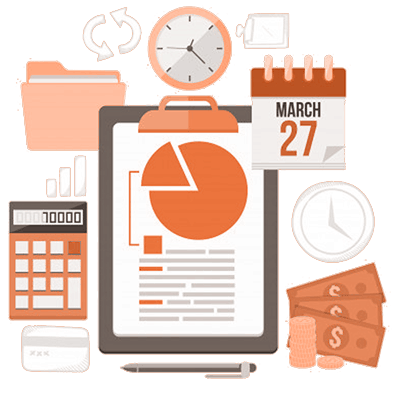Everything you need to know about late Tax Return Penalties and Appeals
Late Tax Return Penalties and Appeals
In the UK, tax returns are a legal requirement for most individuals and businesses. The deadline for filing your tax return is 31st January each year, and failure to do so can result in a late tax return penalty. In this blog post, we will discuss the late tax return penalty, the appeals process, and how to avoid penalties in the future.
Late Tax Return Penalty
If you miss the deadline for filing your tax return, you will be automatically charged a late tax return penalty. The penalty is £100, and it applies even if you don't owe any tax or have already paid the tax due. This means that if you miss the deadline, you will be required to pay £100 as a penalty.
If you still haven't filed your tax return three months after the deadline, an additional penalty of £10 per day for up to 90 days will be applied, resulting in a maximum penalty of £900. If you still haven't filed your tax return six months after the deadline, another penalty of either £300 or 5% of the tax due (whichever is higher) will be applied. After 12 months, another penalty of either £300 or 5% of the tax due (whichever is higher) will be applied. In serious cases, HM Revenue and Customs (HMRC) can also charge a penalty of up to 100% of the tax due.
Appeals Process
If you have received a late tax return penalty, you have the right to appeal. However, before you appeal, it's important to understand the reasons for the penalty. If you have a reasonable excuse for missing the deadline, such as a serious illness or a family bereavement, you may be able to have the penalty waived.
To appeal, you need to write to HMRC explaining why you believe you have a reasonable excuse for missing the deadline. You should provide as much evidence as possible to support your claim, such as a doctor's note or a death certificate. If HMRC agrees that you have a reasonable excuse, they will waive the penalty.
If HMRC does not agree that you have a reasonable excuse, you can still appeal. In this case, you need to provide evidence that you filed your tax return on time or that you did not receive the notice to file. You can also appeal if you believe that the penalty is incorrect or unfair. If you are still not satisfied with the outcome of your appeal, you can take your case to a tax tribunal.
How to Avoid Penalties in the Future
The best way to avoid late tax return penalties is to file your tax return on time. If you are struggling to complete your tax return, you should seek professional help. You can also set up a payment plan with HMRC if you are unable to pay the tax due on time.
In conclusion, if you miss the deadline for filing your tax return in the UK, you will be charged a late tax return penalty. However, you have the right to appeal if you believe that the penalty is incorrect or unfair. The best way to avoid penalties in the future is to file your tax return on time or seek professional help if you are struggling to do so.
Taxes4u tax professionals can assist you with dealing with late tax return penalties and appeals.
Orther tinklaraščio įrašai, kurie jus gali sudominti
- Self-Employed? Here’s What You Can Deduct in 2025
- Pajamų mokesčio skaitmenizavimas (angl. „Making Tax Digital“) (MTD for ITSA): Ką tai reiškia ir kaip galime padėti jums atitikti reikalavimus?
- Vadovas, kaip maksimaliai padidinti savo JK mokesčių deklaraciją 2024/2025 m.
- JK mokesčių deklaracijų pateikimo terminai, gairės ir rekomendacijos
- Kaip užsiregistruoti kaip savarankiškai dirbantis asmuo JK: Žingsnis po žingsnio vadovas
- Galutinis savarankiškai dirbančių asmenų hipotekos Jungtinėje Karalystėje vadovas: Knyga: Mokesčių deklaracijos, SA302 ir kt.
- CIS registracija JK: Viskas, ką reikia žinoti apie
- UTR registracija ir atšaukimas: Ką reikia žinoti
- Kiek galiu uždirbti prieš mokėdamas mokesčius 2023/2024 m. Anglijoje?

